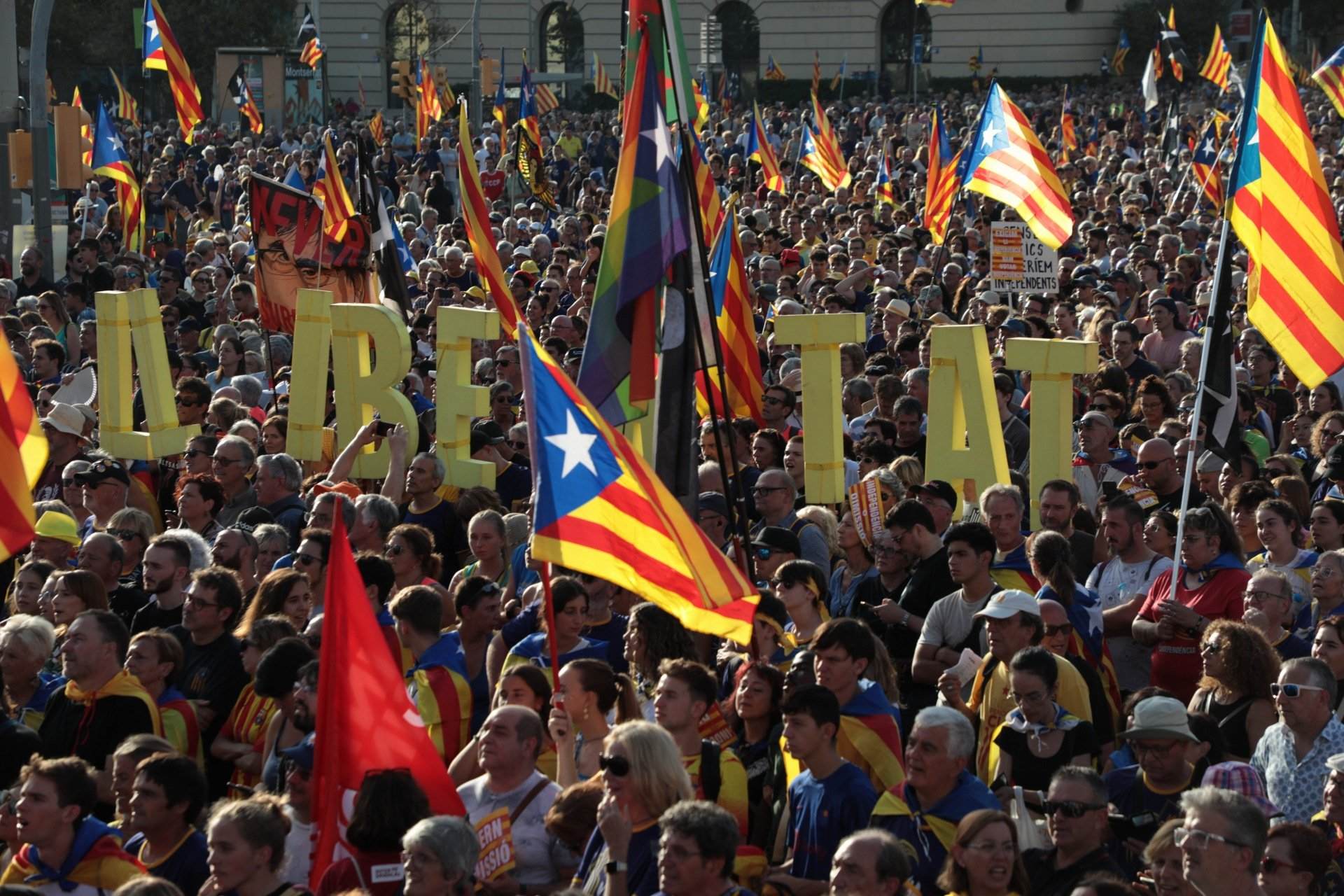The Prosecutor General's Office is to review 82 criminal proceedings affecting 486 people to see if they can benefit from the amnesty law, a spokesperson for the office announced this Wednesday afternoon. They are cases that are currently being processed by the law, and therefore the totals of affected people and cases are not complete, with, for example, the cases with final convictions, and in some cases those where the sentences have already been completed, not on the list. What are present are cases in the Supreme Court, the National Audience and the Catalan High Court (TSJC), in addition to the provincial level courts and those of first instance. However, some cases are missing. For example, the Democratic Tsunami case in the National Audience is counted, but not that of the Supreme Court, which affects the president-in-exile Carles Puigdemont and the ERC deputy Ruben Wagensberg. The application of the amnesty will have to be decided by the judge hearing each case or reviewing convictions, but if the prosecutor is in favour, the judge can almost always be expected to respect it.
This data from the public prosecutors, however, does not differ greatly from the figures given by the Catalan pro-independence organizations. Legal aid organization Alerta Solidària has counted 419 people (not including politicians) who should benefit from the law to wipe out Catalan independence-related cases, which came into force this Tuesday. For its part, Òmnium Cultural has affirmed that 1,616 reprisal victims are eligible for coverage by the amnesty, and of this total, some 697 people are in criminal proceedings. The Catalan cultural body has launched the Amnesty Union, which, through its website, offers documentation and forms to use to request an amnesty. There are, for example, 919 people who have been fined under the so-called "gag law" - the much-criticised Public Safety Law- and the Catalan government has assured that it will return the money ex officio to these people.
Specific cases
Thus, the prosecutors' list contains a case in the Supreme Court for sedition, misuse of public funds and disobedience in the 2017 referendum case, although there are two levels: those already prosecuted, and those with cases pending - Puigdemont and the former ministers Toni Comín and Lluís Puig, aside from the general secretary of ERC, Marta Rovira, for disobedience; and that of the political prisoners convicted and partially pardoned, of which Oriol Junqueres, Jordi Turull, Raül Romeva and Dolors Bassa are still facing a ban on office holding for the crime of misuse of funds. The position taken by the public prosecutors in this case is expected to be controversial because the Supreme Court prosecutors have already informed the Prosecutor General, Álvaro García Ortiz, that they consider that the seven politicians cannot be amnestied for the crime of misuse of funds. The prosecutor general will have to impose his own position.
Looking at the National Audience, there are two cases: that of Democratic Tsunami, where there are 10 people investigated for terrorism, an interpretation of events that the prosecutors do not not share because they assert that at most there was public disorder - a crime covered by the amnesty - and will surely be in favour of granting coverage in the amnesty law. The judge Manuel García-Castellón has already asked the parties if the investigated persons' actions fit within the law, as the majority of defence lawyers have already claimed, while the private prosecutions being conducted by two policemen and some Spanish nationalist organizations are expected to oppose the amnestying of the 10 people investigated. The second case is that of the 12 Committee for the Defence of the Republic (CDR) activists prosecuted for terrorism in the so-called Operation Judas, for whom the prosecutors are demanding high prison sentences, with the court having called for a hearing on June 27th, in which the defence lawyers will again request the suspension of the trial, in this case due to the application of the amnesty law.
ACM case, back to court
With regard to the Catalan High Court (TSJC), the public prosecutor's office includes two cases that are currently in process: the pending independence process trial of three Catalan government officials belonging to the ERC party, Josep Maria Jové, Lluís Salvadó and Natàlia Garriga, and a second one concerning the expenses of the Catalan Association of Municipalities (ACM). This second case, however, was returned in February by the TSJC to the 16th District Court of Barcelona because none of those under investigation had been questioned. And, therefore, it will be this lower court judge who has to decide whether to grant an amnesty to those under investigation. The TSJC was the first court to apply the rule and has already asked about the cases it has related to the 2014 unofficial independence 'Consulta' as well as the 2017 referendum of 1-O: three already executed and one with the trial pending.
In addition, there are 5 cases in the Barcelona Audience for crimes of public disorder, abuse of authority and misuse of funds, and 18 cases in criminal and investigative courts in Barcelona, L'Hospitalet, Badalona, Martorell, Sant Feliu de Llobregat, El Prat, Vilanova i la Geltrú, Sabadell and Cerdanyola, Mataró, Granollers and Terrassa. In the province of Girona, there is one case in the Girona Audience for abuse of authority, and 12 cases in the lower courts of Girona; 5 in Figueres and 1 in Bisbal. There are 6 cases in Lleida and 1 in Solsona. And finally, in the province of Tarragona there are 8 criminal proceedings, 2 in Tortosa, 1 in Reus and 1 in Valls.

